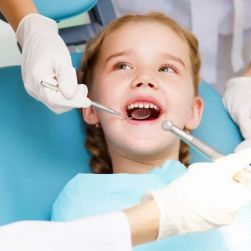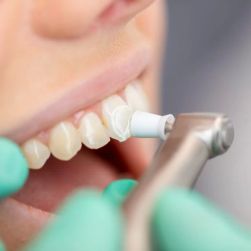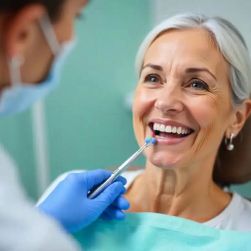Oral Health in the Elderly
As people age, maintaining oral health becomes increasingly important and potentially challenging. Elderly individuals face unique dental issues that require specialized care and attention. In the United States, an increasing number of seniors retain their natural teeth longer than previous generations. However, this trend comes with its own set of challenges, including an increased need for dental care and a higher risk of oral diseases. This article explores the importance of oral health in the elderly, common issues faced, and practical solutions to ensure seniors can enjoy healthy smiles throughout their later years.
Understanding the Importance of Oral Health for Seniors
Oral health is crucial for overall health and well-being at any age, but it becomes especially significant for seniors. As we age, changes in the mouth, such as reduced saliva production and gum recession, can increase the risk of tooth decay and gum disease. Additionally, oral health impacts nutrition since issues like missing teeth or ill-fitting dentures can make it challenging to eat a balanced diet. According to the Centers for Disease Control and Prevention (CDC), approximately one in five adults aged 65 or older have untreated tooth decay. This highlights the urgent need for targeted dental care among this population.
Moreover, oral health is linked to systemic conditions such as diabetes and cardiovascular disease, prevalent among older adults. Poor oral health can exacerbate these issues, making the management of chronic conditions more difficult. Caregivers and healthcare professionals must prioritize dental check-ups and oral hygiene to prevent complications. Encouraging regular dental visits and proper daily oral care can significantly improve the quality of life for seniors.
Common Dental Challenges Faced by the Elderly
Seniors often encounter several dental challenges as they age. One primary issue is tooth loss, which not only affects aesthetics but also impacts functionality and nutrition. While dentures and implants are viable solutions, they require regular maintenance and adjustments. Additionally, dry mouth, or xerostomia, is a common condition in older adults, often exacerbated by medications. This condition can lead to rapid tooth decay and gum disease if not managed effectively.
Gum disease is another prevalent issue among the elderly. Aging often results in increased gum sensitivity and recession, providing an entry point for bacteria. The National Institute of Dental and Craniofacial Research states that over 70% of adults aged 65 and over suffer from periodontal disease. Preventative care includes consistent oral hygiene practices and routine dental visits.
Practical Solutions for Maintaining Oral Health in Seniors
Maintaining oral health in the elderly involves a combination of professional intervention and daily care practices. Routine dental check-ups are critical and should be scheduled at least twice a year. Dental professionals can identify early signs of oral health issues, provide cleaning, and offer solutions such as fluoride treatments or dental sealants to protect teeth.
At home, seniors should be encouraged to practice thorough oral hygiene, which includes brushing twice daily with fluoride toothpaste and flossing. For those with dexterity issues, electric toothbrushes can be an effective alternative. Educating seniors about the significance of good oral hygiene and providing the tools to achieve it is paramount. Additionally, staying hydrated and possibly using saliva substitutes can help manage dry mouth symptoms.
The Role of Nutrition and Lifestyle in Elderly Oral Health
Nutrition plays a crucial role in maintaining oral health for the elderly. A balanced diet rich in vitamins and minerals can support strong teeth and gums. Calcium and vitamin D are particularly important for dental health. Seniors should be advised to limit sugary and acidic foods that can contribute to tooth decay.
Lifestyle factors such as smoking cessation and limiting alcohol consumption can also significantly impact oral health. Smoking is a leading cause of gum disease and can impair healing after dental procedures. Education on these lifestyle factors should be an integral part of oral health programs for seniors, provided by dentists and healthcare professionals alike.
Conclusion: Ensuring a Future of Healthy Smiles for Seniors
In conclusion, oral health is a vital component of overall wellness for seniors. Addressing common challenges and implementing practical solutions can prevent many oral health issues prevalent in this age group. It is important for seniors, caregivers, and healthcare providers to prioritize dental health through regular check-ups, appropriate dental care, and education. By following these guidelines and leveraging the resources available through platforms like Dentistry Toothtruth, seniors can maintain healthy, happy smiles well into their later years. Taking proactive steps today will ensure the well-being and quality of life of our aging population tomorrow.






